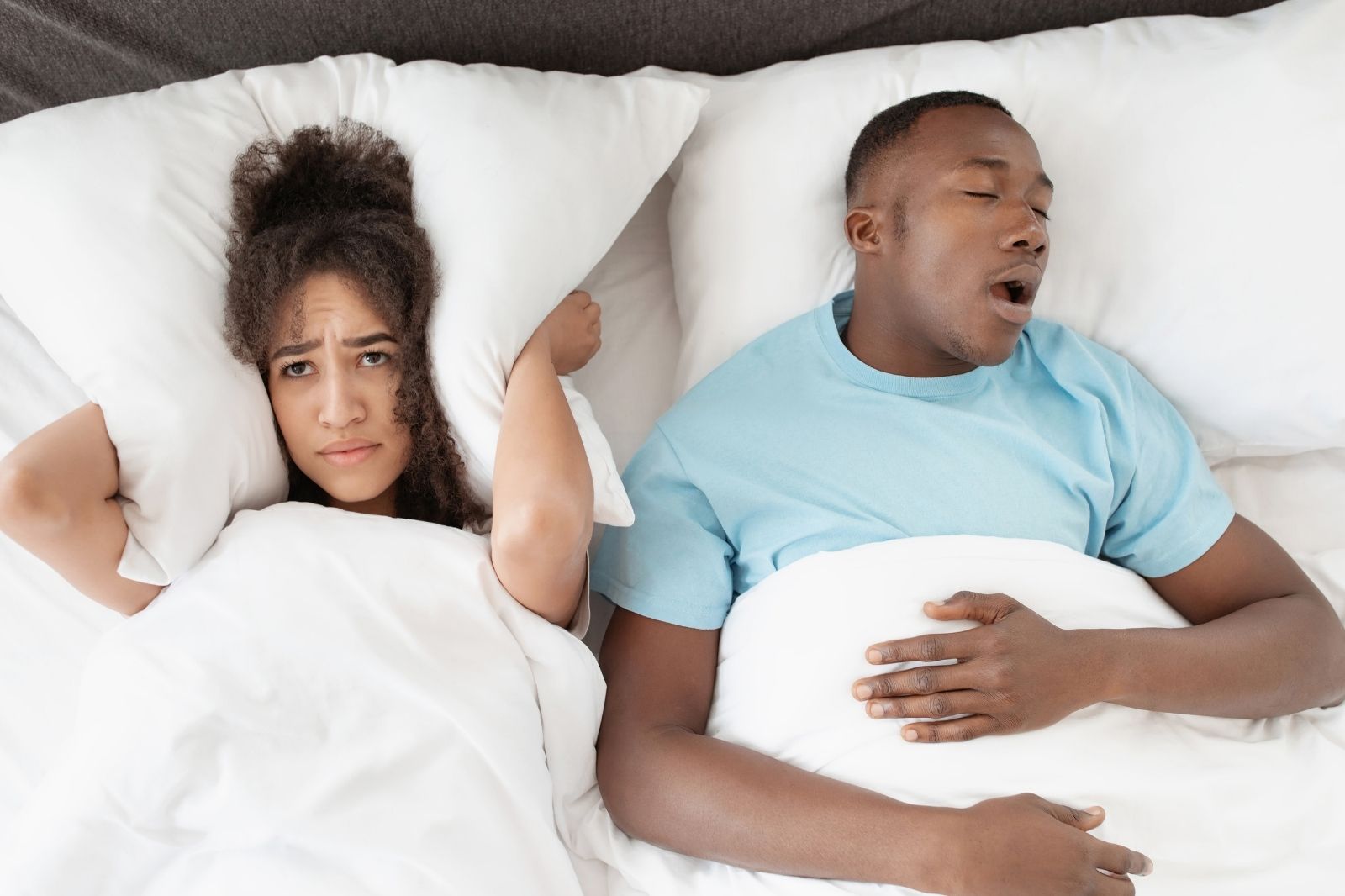Snoring Problems Keeping You Up? Try These Snoring Remedies

Did you know at times snoring can be almost as loud as a chainsaw? Not only that but snoring can significantly reduce a person’s sleep quality and health. Fortunately, various remedies and strategies can help reduce or eliminate snoring. Let’s explore some effective approaches to tackling this common problem.
Adjust Your Sleep Position
One of the simplest and most effective ways to reduce snoring is to change your sleep position. Snoring is often worse when sleeping on your back because the tongue and soft tissues of the throat can collapse and block the airway. Try sleeping on your side instead. To encourage this position, you can use a body pillow or put a pillow in between your knees.
Maintain a Healthy Weight
Excess weight, particularly around the neck, can put pressure on the airway. Adopting a healthier lifestyle that includes regular exercise and a balanced diet can help you lose weight and reduce snoring. Even modest weight loss can have a significant impact on snoring severity.
Avoid Alcohol and Sedatives
Alcohol and sedatives relax the muscles in the throat which can make snoring worse. It’s best to avoid these substances in the evening. If you’re struggling with snoring, try to eliminate or reduce your consumption of alcohol and sedatives to see if there’s an improvement.
Anti-Snoring Devices
A common option is a continuous positive airway pressure (CPAP) machine, which keeps the airway open by delivering a steady stream of air through a mask. Another option is a snoring mouthpiece which helps to reposition the lower jaw to keep the airway open. I highly recommend the brand Vital Sleep for the best options, but there are lots of high-quality snoring mouthguards on the market so choose from.
If nasal congestion is contributing to your snoring, nasal strips work by physically opening the nasal passages. They also help you sleep if you’re congested by a cold or other sickness. It’s important to note that anti-snoring devices are different from devices that are meant to cure sleep apnea. Consult with a healthcare professional to determine which device might be right for you.
Stay Hydrated
Dehydration can cause the tissues in your throat to become sticky and more prone to vibrating. Drinking plenty of water throughout the day (but not at night since you’ll need to use the bathroom often). Aim for at least eight glasses of water daily, and reduce your intake of caffeine and alcohol. Use a humidifier in your room at night if you need to.
Practice Good Sleep Hygiene
Creating a sleep-friendly environment can make a difference in your sleep quality. Ensure your bedroom is cool, dark, and quiet. Invest in a good quality mattress and pillows to support better sleep posture.
Explore Medical Treatments
If lifestyle changes and home remedies don’t provide relief, it may be time to consult a healthcare professional. Persistent snoring can sometimes be a sign of a more serious condition, such as sleep apnea. Your doctor may recommend further testing or treatments.
Conclusion
Snoring doesn’t have to be a permanent problem. By implementing some of these remedies and making lifestyle adjustments, you can significantly reduce or even eliminate snoring. Start with simple changes, such as adjusting your sleep position or using nasal strips, and progress to more advanced solutions if you need to. A good night’s sleep is within reach—take the first step today towards quieter, more restful nights.
Why Trust Us?
At The Sleeping Institute, we're dedicated to transparency, impartiality, and accuracy in every article we publish. Our reviews are based on comprehensive analysis and firsthand experience. Staying current with the latest advancements in sleep technology, we offer up-to-date, reliable, and unbiased information to help you make informed decisions for a better night's rest. Let us be your trusted guide in the ever-evolving world of sleep technology!